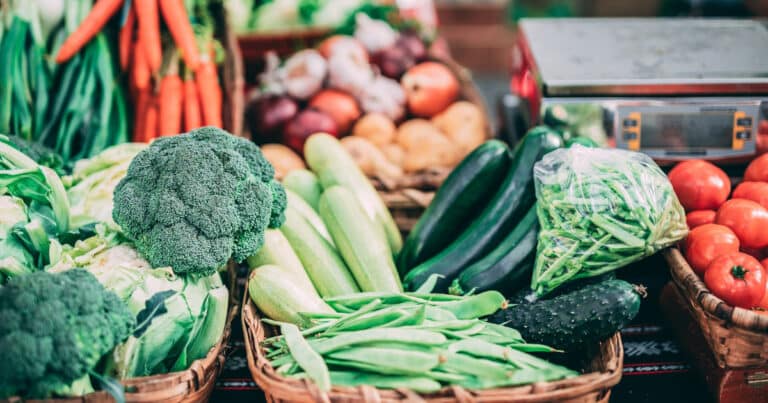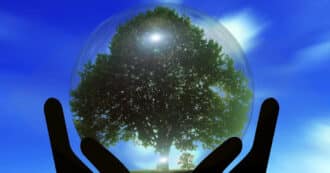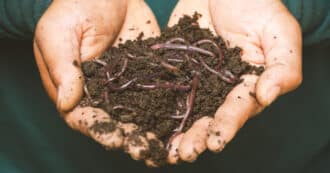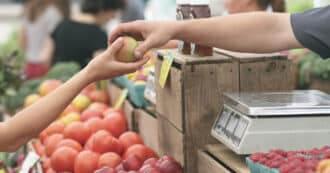By Harry Cooper – Vegans and Vegetarians live lifestyles based around limiting one’s diet to primarily fruits, vegetables, and other plant based foods. The idea has been around for centuries, appearing in Hinduism, Buddhism, and Greek Philosophy.
It was originally meant to help humans live a life without hurting any animal, but as it became modernized through the 18th to early 20th century, the idea of vegetarian and vegan diets also became about nutrition and eating healthier. And today, we are starting to see how eating plant based foods plays a unique role in the world of environmentalism.
The Difference Between Vegan and Vegetarian
The vegetarian and vegan lifestyles are very similar in concept, but they can have very different impacts on an individual’s nutrition and ecological footprint. The main difference between the two is that a vegetarian won’t eat meat, and a vegan won’t eat meat as well as any animal product coming from animals.
There are also variations on the rules of being vegetarian such as some refrain from eating dairy or eggs while some allow themselves to eat fish. Both ideologies seek to help people live a lifestyle that is healthier and more sustainable for the environment. But what exactly is it about what we do and don’t eat that has such an effect on the planet?
Vegetarians who Eat Fish
Pescatarians follow the normal rules of vegetarianism, except they allow themselves to eat fish and seafood.
However, including fish and seafood in you diet can cause some of the environmental impacts that the typical vegetarian and vegan try to avoid. For example, commercial fishing often uses techniques that harm other marine life and deplete fish populations. This offset to marine ecosystems is causing a decrease in the oceans’ biodiversity.
Vegans Don’t Eat Eggs
As being vegan involves eating no animal products, eggs are already off the table for them. However, there are some vegetarians who will eat eggs, and some who won’t. Vegetarians who eat eggs are called ovo-vegetarians, or lacto-ovo-vegetarians (vegetarians who eat both eggs and dairy).
There are a lot of reasons why vegan and vegetarian diets sometimes don’t include eggs. One of the primary reasons is that in the past hundred years the egg and poultry industry has been incredibly industrialized. This has created horrendous living conditions for the hens laying the eggs.
Egg laying hens live in tiny cages that are often stacked on top of one another in dark rooms where the hens may never see the outdoors. Ovo-vegetarians and lacto-ovo-vegetarians often see eating eggs as still avoiding the slaughter of animals, however it does not stop animals from facing poor living conditions.
Vegetarians Eat Dairy
Like eggs and seafood, the vegan and vegetarian world has mixed views of dairy products such as milk and cheese. Vegans, following a completely plant based diet, avoid dairy altogether, whilst the only vegetarians that eat dairy are lacto-vegetarians and lacto-ovo-vegetarians.
One of the biggest issues that vegans and vegetarians have with dairy products, and meat production in general, is the energy efficiency of a plant based diet versus a meat and dairy based diet.
In terms of calories per acre, a kilogram of beef requires around 20 times more land to produce than soybeans. This is because we not only need to use land to house and raise cows for meat and dairy, but we also need to grow enough grains to feed them, whereas on a plant based diet, the food going to feed our cows would go directly to us.
How Dairy Food Affects Health
While there are reasons for veganism and vegetarianism not including dairy, there are many good reasons to include it as well. Dairy food provides an excellent source of nutrients like calcium and vitamin B12, which can be hard to obtain through a plant based diet. Eating dairy products also creates a lower risk of cancer, diabetes, and heart disease when eaten in moderate amounts.
However dairy food can contain high amounts of sodium and cholesterol. While there are good things in dairy, when eaten in moderation, dairy can have some negative health impacts. Dairy can help prevent heart disease and cancer, but in some cases eating dairy can help lead to it.
Vegans Don’t Eat Honey
All kinds of vegetarians will eat honey although vegans consider it an animal product as it is made by bees. Producing honey has been shown to contribute to diminishing the world’s already shrinking bee population. Bees help the environment by helping plants pollinate and reproduce. If it weren’t for their vital function in the environment, we would not have nearly the amount of biodiversity in our ecosystems.
However, commercial bee farming can overwhelm a native ecosystem with one kind of bee: the honey bee. The honey bees compete with local bee populations for food, and create a system of pollination that is insufficient at supporting a diverse range of plants.
The Plant Based Diet
Following a partially plant based vegetarian diet or a completely plant based vegan diet diet can be very healthy. Plant based diets have been shown to make a lower risk of cancer, heat disease, diabetes, and obesity.
This is because a plant based diet allows people to avoid the added sugars, saturated fat, and cholesterol that is found in animal products and other processed foods.
Challenges For Vegans
However, there are a lot of nutrients that are found in animal products that are harder to get a sufficient amount of them from fruits and vegetables in a plant based diet. These nutrients can include zinc, iron, vitamin D, and vitamin B12.
Vegetarians don’t have as big of an issue with nutrient deficiencies as vegans, as many animal products contain the vitamins and minerals of a balanced diet. However, on a completely plant based vegan diet it is sometimes difficult to achieve completely healthy nutrition.
Animal Treatment
Not having to harm and kill an animal for every meal is one of the original reasons behind a plant based diet, and since the industrialization of the food industry, animal treatment has become increasingly inhumane.
Animals are usually forced to live in tiny enclosed spaces, mother pigs and cows have their young torn away from them at birth, and the animals are often forced to endure physical abuse such as tail removal for cows and pigs and debeaking for chickens.
Change in the Food Industry
However, the animal treatment in meat production is not all doom and gloom. A New York Times article about cruelty on farms discusses how “research by animal welfare scientists has led to a number of changes in the industry”. Small spaces are used less, animal mutilation is less common, and overall an animal on a meat farm will usually get proper treatment. It has reached the point that animal cruelty is the exception rather than the rule in meat production.
Vegans Eat Environmentally
Vegetarian and vegan diets are typically better for the environment. Vegetables are produced more efficiently than meat and less resources are required overall. Even if you don’t follow a vegetarian or vegan diet, there are still ways to contribute to to the vegan and vegetarian cause.
The reducetarian movement is a dietary movement focused on allowing people to eat more environmentally consciously without going full vegan or vegetarian. Reducetarians do not seek to eliminate meat or dairy from a person’s diet, but rather “encourage people at least to reduce their meat and dairy intake, and their impact on the planet’s limited food resources”.
This philosophy is based on the idea that in order to make an actual positive impact on the environment and animal welfare, everyone must contribute a little bit.
Regenerative Agriculture
There is also a growing movement in favor of regenerative agriculture. Recognizing the difficulty of getting people to stop eating animal products completely, more and more farmers are using their animals to help improve the soil.
While factory farming has a net negative effect on the environment, regenerative agriculture can be good for animals, people and planet, by ensuring animals can live happy, healthy lives, provide healthier meat/dairy/eggs/etc. and improve soil quality through providing natural fertilizer and soil aeration. Check out the documentary Kiss the Ground to learn more about the regenerative agriculture movement.
Religion and Diet
Rabbis Yonatan Neril and Leo Dee discuss in Eco Bible how the original human diet in the Garden of Eden was plant based, according to Genesis 1:29:
“God Said, ‘See, I Give You Every Seed-Bearing Plant That Is Upon All the Earth, and Every Tree That Has Seed-Bearing Fruit; They Shall Be Yours for Food.'”
Rabbis Neril and Dee point how “one of the only statements God made to people when they were created is to eat a plant-based diet.”
Keeping this concept in mind, we can use every plant based meal we eat as an opportunity to reconnect to the Garden of Eden and the Creator who placed us there.
* Featured image source
Follow this link to learn more about Food Production.








